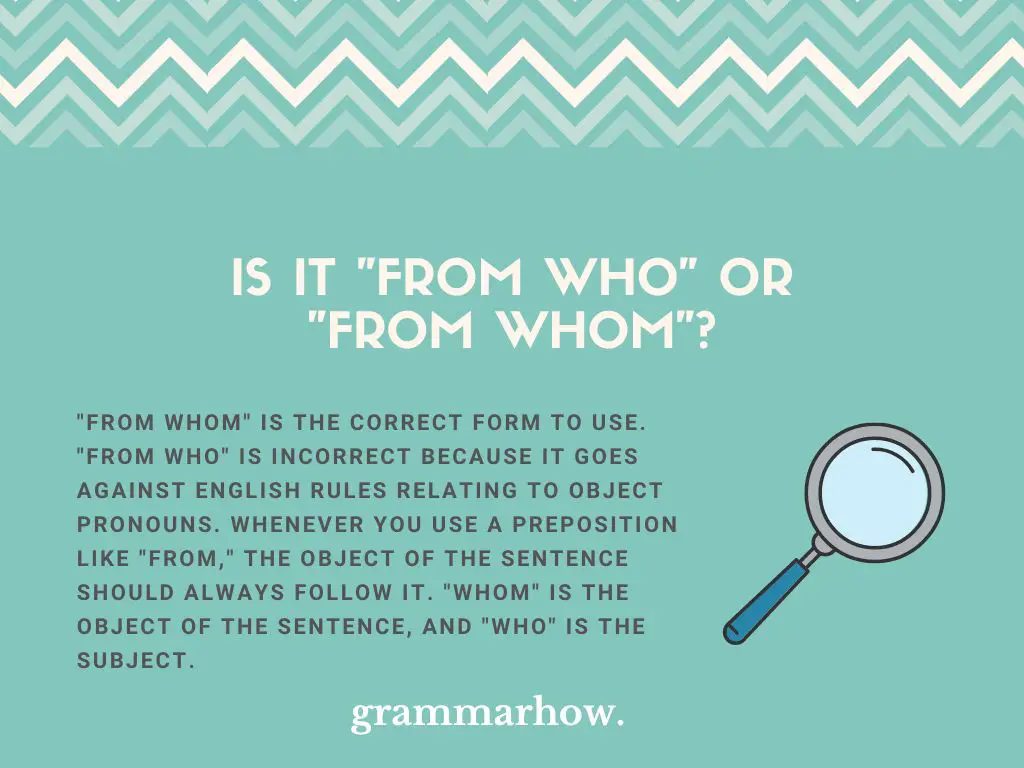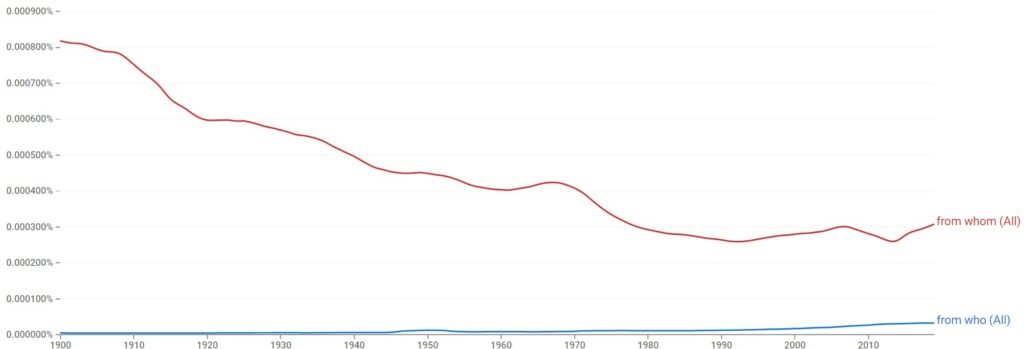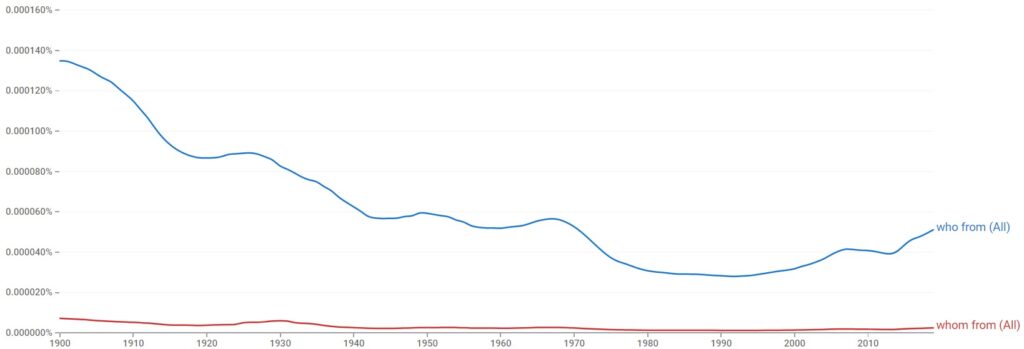“Who” and “whom” have always been a source of confusion for English speakers (both natives and non-natives alike). This article will aim to teach you the differences between “from who” and “from whom” and how you can make sure you get them right.
Is It “From Who” or “From Whom”?
“From whom” is the correct form to use. “From who” is incorrect because it goes against English rules relating to object pronouns. Whenever you use a preposition like “from,” the object of the sentence should always follow it. “Whom” is the object of the sentence, and “who” is the subject.

“From whom” is the only correct form, and it’s the one you’re more likely to come across in formal English.
Informally, it’s common for people to use “from who” because they do not know how the rules change “who” to “whom.” This is a mistake, and it should be avoided if possible.
Native speakers will occasionally make this mistake as well, as not everyone understands how “who” and “whom” differ. Nevertheless, it’s always better to practice good English, so “from whom” should be your best choice.
According to Google Ngram Viewer, “from whom” is the only correct choice. The large difference in popularity between the two phrases shows that only the objective form “whom” should be used with the preposition.

From Who
“From who” is grammatically incorrect. When using a preposition like “from,” an object must come after it. “Who” is not the object of the sentence. It is the subject, meaning that it is incorrect to put after “from” in any situation.
- Correct: I went to see my teacher, from whom I learned a great deal about this problem.
- Incorrect: I wanted to talk to her, from who I knew I’d learn all I could about this.
- Correct: From whom did you retrieve this information? I feel like you shouldn’t know about this stuff.
- Incorrect: I will visit my mother, from who I owe a great deal. Without her, I’d be a nobody.
From Whom
“Whom” is the object of the sentence. Therefore, “from whom” is grammatically correct. You should use it whenever you want to learn where someone might have received some information from. “Whom” refers to a specific person, and it’s an object pronoun like “him” or “her.”
- I will go to see him later, from whom I shall learn what I need to know. I won’t leave until I’ve made that happen.
- I want to see my mom, from whom I will ask the questions that have plagued me for these last few years.
- From whom did you get this information? I want to know so that I can get in on it too.
- From whom did you hear that? I thought that was supposed to be kept secret, and I’m pretty sure you’re not supposed to know.
From Which
“From which” works similarly to “from whom,” but we use it when referring to things rather than people. “Who” and “whom” always refer to people, but “which” allows us to talk about a much broader topic of things and objects.
- From which place did you say you were from? I can’t remember what you said.
- You told me you got this information from which outlet?
- I will visit the building later today, from which I should be able to plot my next course of action.
- I will have to go there later, from which instant I should be able to find a way to sort this all out.
Is It “Who From” or “Whom From”?
“Who from” would be grammatically correct when used in this order. “Whom from” places the object in the wrong place, meaning it no longer works with “whom.” The word now comes before the preposition, meaning the subject is needed, so “who” is correct.
According to Google Ngram Viewer, “who from” is vastly more popular, showing that it’s the only correct form of the two. “Whom” is only correct after the preposition.

Final Thoughts
“From whom” is the only correct choice. You should not use “from who” in any situation. The object of the sentence always comes after a preposition like this. The same would apply no matter what preposition we change “from” to.
You may also like:
“With Who” or “With Whom”? Correct Version (With Examples)
“All of Who” or “All of Whom”? Correct Version (With Examples)
“By Who” or “By Whom”? Correct Version (With Examples)

Martin holds a Master’s degree in Finance and International Business. He has six years of experience in professional communication with clients, executives, and colleagues. Furthermore, he has teaching experience from Aarhus University. Martin has been featured as an expert in communication and teaching on Forbes and Shopify. Read more about Martin here.
